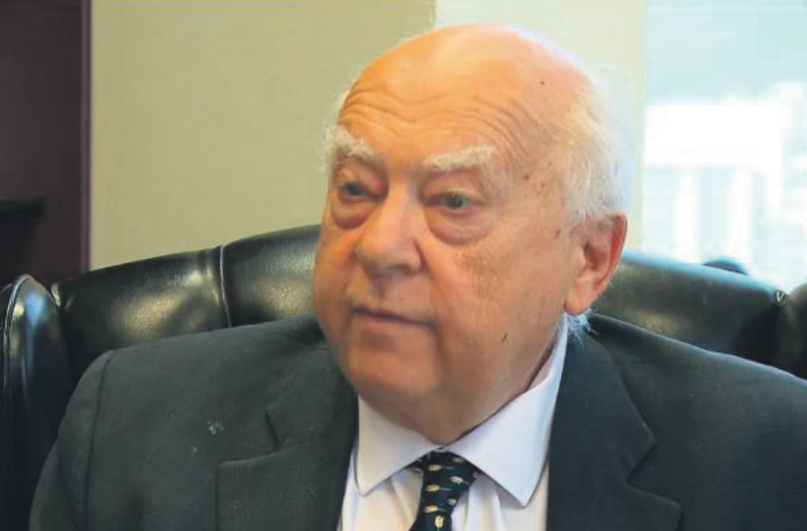We shouldn’t emulate China by tracking individuals, says Julius Grey
Martin C. Barry

Although the COVID-19 crisis is probably far from over, Montreal lawyer and human rights activist Julius Grey is warning that the unfolding emergency could become permanent if attention isn’t focused on the risk of our becoming a “surveillance state” while using technology to enforce health protection.
Crisis aftermath
In the aftermath of the Sept. 11 2001 terrorist attacks on the U.S., social critics took note that heightened awareness of public security grew massively, as did sometimes ruthless enforcement measures for many years afterwards – some of which are still with us.
“I have often suggested that we’re living in a post-democracy,” Grey said in an interview this week with Newsfirst Multimedia.
“We are no longer a democracy. The fact that everything can be followed and preserved and nothing can be hidden means that, in effect, freedom is a thing of the past.”
Tracking technology
One technological phenomenon that has emerged during the ongoing COVID-19 crisis has been the ability by government and medical authorities to use Google and Facebook location-tracking information to plan infection containment strategies.
While the data is anonymous and is furnished so that there are no personally-identifying markers, it does track people’s movements and shows foot traffic trends at different locations over time. This can help get a better understanding of whether people are adhering to orders they stay home.
China tracking individuals
It should be noted that both Google and Facebook have the ability to track locations individually, although the two companies have stated that they are not sharing their data to that degree of detail and have no plans to do so in the future.
However, in China authorities have gone ahead and taken the additional step: they are using smartphone location data to track people who’ve been identified as being infected with the COVID-19 virus. The Chinese system monitors phone signals to alert police if individuals in isolation leave their location or switch off their phone.
Technology as enabler
As Grey noted, Hungarian Prime Minister Viktor Orban, who was already regarded as authoritarian, used the COVID-19 crisis as a means to increase his power last month when the Hungarian parliament passed a law granting the government the power to rule by decree.
Political ramifications aside, Grey said that on the whole technology has now become the principal enabler of potential abuses against human rights and freedoms.
“Technology means that the rich, the powerful, the government have means that the average man does not have – that the average man has very little way of defending himself from it or of influencing things,” he said.
Freedom from surveillance
“And that’s why what we need quickly after the crisis is not an analysis of what happened with the crisis – because the crisis does genuinely deserve some special measures, which is something that is reasonable – but a discussion of the technology and of the way of maintaining freedom. And one of the things that must be is freedom from constant surveillance.”
As western countries like Canada and the U.S. continue to struggle with the COVID-19 outbreak, imposing limited restrictions on individual rights in order to control the spread, the People’s Republic of China appears to have succeeded, at least for now, in slowing or stopping the virus by electronically tracking and controlling individual carriers.
Doubts China’s claims
All the same, Grey remains unimpressed by China’s performance during the crisis. “I am very sceptical about China,” he said, expressing doubt as to the veracity of the country’s claims to have mostly overcome the virus.
“Even if there were a successful use of special powers by a country which is not democratic, I would not want to see in that the proof that dictatorship works,” Grey added, while suggesting there is an imminent danger of countries like Canada and the U.S. emulating the example.
Risk of emulating China
“I think we are heading down that road already,” he said. “It’s very difficult to argue that the countries we call democracies are really and truly democratic. They have some vestiges left. And some like Canada, Germany, France, maybe Britain, still have a lot of the old freedoms.
“But the United States, what can you say of a country which is a mass imprisonment state, where millions and millions of people are imprisoned? And that’s one of the consequences of technology: technology allows you to catch everybody.”
This article was published on April 17 for the PX News print issue. Click here to read the full issue.









